
by Marti Armstrong MS
Marti Armstrong
has an MS in pastoral counseling from Iona College in New Rochelle, NY. She has worked in substance-abuse counseling as well as bereavement counseling, including post-abortion bereavement counseling. Currently, she helps facilitate a bereavement group in her home parish, and volunteers, tutoring foreign students in English at Holy Apostles Seminary in Cromwell, Connecticut. She is a dedicated widow, and she also enjoys going to Georgia and Texas to visit her grandchildren.
Note from Dr. Chervin: As one who has benefited greatly from psychological counseling, pastoral counseling, and spiritual direction, I was happy that my friend and colleague Marti Armstrong wrote this sharing for us including her reasons for her work as a counselor. I believe that the twenty-first century Catholic Church will see a synthesis of insights from theology, philosophy, spirituality, and psychology so that those in these ministries may offer ample help to those in need of healing and inspiration.

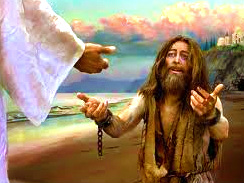

During the nineteen sixties, a spiritual/psychological need became more prevalent. “My analyst says” became a popular phrase. People were attempting to “find themselves,” find peace, healing, and wholeness. Often, during a personal crisis, help would be sought from clergy of the various faith traditions, as well as from practitioners of psychiatry, psychology, and counseling.
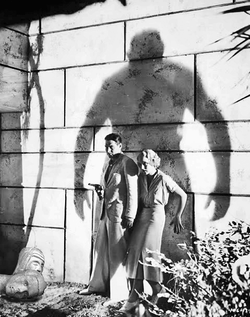
Some clergy did not trust psychology. Undeniably, some of their suspicions were well-founded. However, just as some directees needed medical help for physical disorders, some also needed help for emotional difficulties. As antibiotics were required for some at various times, anti-depressants or tranquilizers might be needed at others. Some well-meaning but misinformed directors, lay or cleric, implied that if the person directed had more faith, he or she would not need the medications or psychological help.



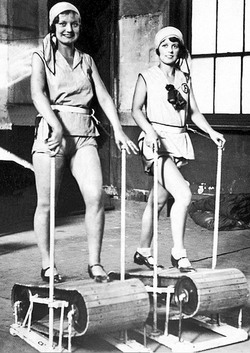
| | Psychiatrist Dr. Scott Peck validates the need for pastoral counseling in his book Further Along the Road Less Traveled. He refers to the newly established separation of science and religion during the seventeenth century. The result led to what became an unhealthy clash between these two complementary supports to mental and spiritual wholeness. It is no accident that pastoral counseling has been one of the most rapidly growing career fields over the course of the past twenty-five years….Indeed, unless a patient has a severe psychiatric disturbance clearly suggesting pharmacotherapy in addition to psychotherapy, I am probably more likely to refer him or her to a pastoral counselor than to a psychiatrist. (p. 249). |
| | Pastoral counseling has the capability to contribute healing and growth in the life of the client or counselee, as well as in the counselor him/or herself. In fact, we are encouraged to recognize that it is not about “them” and “us,” but that we are all in this together. Adrian Van Kaam’s Art of Existential Counseling emphasizes the here-and-now encounter between client and counselor, the unconditional regard, and the substantial growth in both client and counselor. In my own experience, by helping married couples in crisis, I became a better wife to my own husband. It is amazing to experience the insights we derive in our own lives as a result of the insights from the insights acquired by our clients during counseling sessions, as well as what is learned between sessions by both counselor and client. |

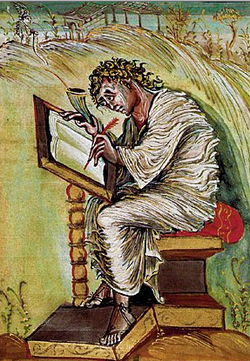



It is not uncommon to hear a member of Alcoholics Anonymous describe himself as a “grateful alcoholic.” Often, his use of the term “grateful” includes his finding God through his alcoholism and ensuing recovery. What is learned is that sobriety—or emotional health, or other healing—involves a new, healthy relationship with God.
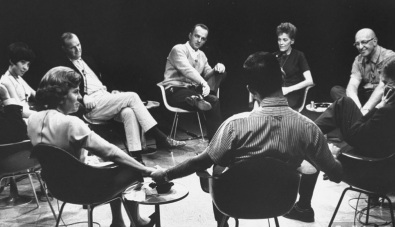




I hope this chapter helps to summarize the need, uses, applications, and potential of pastoral counseling as part of a twenty-first century Catholic life-style. In many ways, pastoral counseling and spiritual direction seem to overlap. Pastoral counseling is an ongoing process in which client and counselor meet frequently, often weekly. During this time, the counselor and client work through personal crises or needs with the goal of self-knowledge, affirmation, and healing and growth for the client. Listening is a key element.
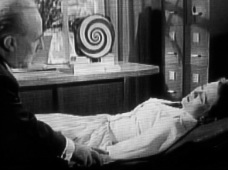
- Based on the Baltimore Catechism’s definition of man as “a creature composed of body and soul, and made in the image and likeness of God,” can you how this definition fits in with the need for pastoral counseling?
- Can you think of some physical activity that has enhanced your own mood, consequent thinking and spirituality? Conversely, can you give an example of physical and emotional healing as a result of your own prayer-life and reception of the sacraments?
- Can you think of a person in emotional pain who could benefit by your empathetic listening?
- Sometime this week observe your feelings, and write them down. Be aware of any results within you as a result.
Asked by Ronda Chervin to add a little more to this chapter, these were some insights I thought were important:
When someone loses a loved one, a spouse, a child, or any beloved relation or friend, intervention is often required. Sometimes, the funeral home will direct the bereaved to counseling help. Here is another opportunity for the pastoral counselor to be of assistance. When a spouse dies, for example, the new widow or widower is suffering from exceedingly deep grief, loss, emptiness. In fact, the symptoms experienced by the bereaved are normal for grief, but they are so profound and vast, that if the person were not experiencing a loss, those symptoms would be cause for a serious mental health diagnosis. In our parish, we have a bereavement group. Bereaved persons are able to be helped by expressing their grief, and at the same time, they are able to reach out to others suffering from grief. They also learn about what to expect, as well as the normality of their symptoms during this time. This can become a time for transformation of relationships with family, friends and acquaintances, and in a special way, with God. The pastoral counselor walks along with the bereaved, helping toward healing and peace. Actually, the basic practice of just listening to the bereaved is something anyone can do.
Often, during the bereavement process, a caring person, a friend, relative, or even a physician, may try to alleviate or eliminate the mourner’s symptoms. Attempts at humoring or distracting the mourner may appear merciful, but the mourner needs to express that grief, the feelings, the memories. Listening is the key. In my own personal experience, shortly after my husband died, I had an appointment with my doctor. He knew that my husband had died, and noticed my less-than-energetic demeanor. Consequently, he offered to prescribe an antidepressant. All I could think was: “Don’t deprive me of my grief….Let me grieve naturally, experience my feelings, sadness, and rich memories too…let me truly live!”. Yes, one needs to grieve, to go through that process and go on with his or her life. This authentic grieving produces healing.
In my own personal experience as a counselor, the most intense, and yet extraordinarily fruitful, counseling, has been with persons suffering from post-abortion bereavement. I was able to help post-abortion women through Project Rachel. Sometimes, a woman would be referred to one of us by a priest or someone who had learned of her secret suffering from her abortion or multiple abortions. I don’t think I can begin to describe the pain these people experience. I could perceive such profound pain, especially at the initial appointment. Again, it was the listening, encouraging, unconditional acceptance that helped. In almost each case, there was a deeply spiritual and transforming dimension. It was not uncommon for the woman, through sacramental Confession and/or the suggestion of a priest, to become aware of her need for some post-abortion counseling. Indeed, at least one woman reported beautiful mystical experience as a result of the Sacrament of Penance. This ministry was an example par excellence of Divine intervention in the healing process. During this process, the woman is able to accept her guilt, her grief, her lost child, the forgiveness of herself as well as others involved in the abortion. It is also thought-provoking to note that numerous people suffering from post-abortion syndrome were inclined to be Pro-Choice about abortion before the help and healing. Afterward, often, the same persons became Pro-Life. The pain unmasked and healed led to wisdom and transformation. A very powerful source for post-abortion healing is the retreat known as “Rachel’s Vineyard”. Post-abortive women and others involved in the abortions make this healing retreat. This is a powerful retreat weekend, complete with Scriptural readings, healing exercises, sharing, supportive community-building, Mass and the Sacrament of Penance. Rachel’s Vineyard retreats are available throughout the U. S. and other countries as well. At a Rachel’s Vineyard weekend, one thing that seized me was the sense of fear, anger, near-despair in the faces of the retreatants on Friday night, contrasted with the peace, joy, and a newness of life on those same faces two days later, on Sunday afternoon. The Rachel’s Vineyard retreatants also leave the retreat renewed, healed, and often outspokenly Pro-Life.
In the counseling process, we can learn some practical insights from psychiatrist Victor Frankl’s concept of logotherapy. Dr. Frankl survived imprisonment in a Nazi concentration camp, and surrounding that experience, he wrote the book “Man’s Search for Meaning”. He was able to survive, physically, emotionally, and spiritually during this time mainly because of his own attitude. For example, he would imagine what a beloved person, such as his wife, might be doing at that moment. He focused on positive outcomes in his life and those of others. He planned and mentally wrote future books. His mind became wholesomely distracted. Indeed, he was using this same mind and imagination to influence his own feelings and emotions. From this school of thought, logotherapy, the counselor is able to help the client focus on what positive outcome he may derive from his attitude, especially in a difficult and challenging situation. The strong point of this mode of therapy is that the client is encouraged to find meaning in his life, even in, and especially in, very trying and even tragic circumstances. Instead of being a victim of circumstances, one is encouraged to grow in spite of, and indeed through, the situation. This can be very empowering in any of our lives. In logotherapy, often through the positive use of the imagination, and journaling, we can logically bring these elements to prayer. The whole person, body, moods, mind, and soul, can be brought to the greatest Healer.
Dr. Conrad Baars also brought together the therapeutic process with his Catholic spirituality. He recognized the need for affirmation in each of us. Many persons suffer from poor self-esteem, feelings of inferiority and self-condemnation. Often, this is the consequence of being raised by parents who did not affirm or build up the person emotionally, parents who did not know how to affirm this child. Dr. Baars labeled this condition, “deprivation neurosis”. There are different degrees of being unaffirmed, ranging from mild symptoms in a large sample of all of us, to more pronounced neuroses, to those suffering from narcissistic personality disorder or borderline personality disorder. What is needed in the therapeutic process here, is a counselor who genuinely gives the client the affirmation needed in the process, who is present to the client. Self-affirmation is not a solution; one needs to be affirmed by another person to help in the therapeutic process. While respecting our own boundaries, we can help the unaffirmed persons who are in our lives. Again, empathic listening, unconditional regard and acceptance, affirming the other, are keys to helping, even in a non-therapeutic setting. If any of us feels a lack of affirmation, for whatever reason, from time to time, there is One who will always affirm each of us. When one is feeling “deprived” or unaffirmed, a prayerful reading of Psalm 139 can be a good resource for healing.
For Personal Reflection and Group Sharing:
- Based on the Baltimore Catechism’s definition of man as “a creature composed of body and soul, and made in the image and likeness of God,” can you how this definition fits in with the need for pastoral counseling?
- Can you think of some physical activity that has enhanced your own mood, consequent thinking and spirituality? Conversely, can you give an example of physical and emotional healing as a result of your own prayer-life and reception of the sacraments?
- Can you think of a person in emotional pain who could benefit by your empathetic listening?
- Sometime this week observe your feelings, and write them down. Be aware of any results within you as a result.
Response of Fr. Dominic Anaeto to the chapters and class discussion thus far:
One-sided thinking that I am right and you are wrong is not good. It would be better to be saying: you see something, I see something. We should not be always thinking of division: I against them. We against them. Differences between people can be seen as positive. Between I know nothing, and I know everything, is I know something. Extremes would be psychologism (the idea that everything religious people think of as real on a spiritual level is really only a manifestation of some psychological complex) vs. all is spiritual. The pastoral counselor, for example, could refer say a rape victim to a psychologist.
Response of Sean Hurt:
I have a general comment to make on the subject of pastoral counseling: evil exists; it's inside us and outside of us. That truth saves us from the tendency to objectify evil in the people we see around us. Nobody is evil incarnated. This was the fallacy I fell into as an atheist, that evil was best fought by fighting evil people. But evil is more like a disease that has infected us all. To fight the disease we have to heal ourselves and heal the people around us-- not destroy the terminally infected. Fight evil, not the people, and first learn to fight the evil within; then you can take the battle outside yourself.
During this century of great material advances, great conveniences and comforts, pain, especially spiritual and emotional pain, has become more intense and pervasive. As we look around us, and even within ourselves, we see unprecedented material blessings, yet astounding widespread spiritual, mental, and emotional wounds.
This is something I really observed coming back to America from Malawi. There is an incredible woundedness here, so much fear, hostility and competition. This lack of human solidarity is unknown in a Malawian village. In our places of work here in the United States we employ empty phrases like “professionalism” to mask our ruthlessness. In our personal relationships we stay cool and keep our distance instead of drawing ever nearer. We are so used to treating other human beings as means unto ends that we fail to see the pain it causes.
How do we cope with this pain? It seems to me, many of us learn to put on a “thick skin”, but in doing so we numb our humanity because we cannot selectively numb parts of ourselves. When we numb one piece, we numb the whole.
I remember the first time I entered a Catholic church when I was in my early twenties and a professed atheist. I’d never been in a church building prior to that day. It was not an event I could easily forget—it was dark inside at the end of the day, but little rays of light shone through the stained-glass and hung in the air thick with incense smoke from an earlier mass. There was a sense of stillness, of vastness, something now I recognize as holiness that I could dismiss, then, but could not ignore. The only sound to disturb the mysterious stillness was from a woman crawling on her knees praying the Stations of the Cross and I could do nothing more than perpetually glance over and think, “This woman is insane, these people are insane.” But still there is something you cannot ignore.
The mysteries of the church are at the same time incredibly compelling—yet seemingly insane. I think of the many disciples that abandoned Jesus when he revealed to them the necessity of eating his body and drinking his blood. They could not believe that teaching. Rationally, it’s nonsensical, but something, nonetheless, draws you in.
At some point in our journey of faith, I think we all have to deal with this notion of insanity. I draw strength by recalling the saints and holy people and their works of mercy that may well have been dismissed as mental illness. In my own story of conversion, they might say my religious beliefs are insane, but we judge by the fruits and the fruits of my conversion paint the opposite picture: of one saved from mental illness, from addictions, wounded relationships, consuming anger and resentments.
If God offers us hope and we choose despair; if He offers us joy and we take sorrow; if He offers life but we prefer death then, that, I think, is insane.
The decision to forgive, not necessarily the feelings of forgiveness, yields a significant and often energizing experience of freedom.
Before my conversion I was probably the most unforgiving person I’d ever known. Although I didn’t realize it at the time, it was a form of self-made bondage. If you are hardhearted and unforgiving of other people’s shortcomings, inevitably you end up holding yourself to the same hard-hearted standard. Forgiveness allows you to accept your own faults and love yourself for what you are (which is a glorious creation of God).
In the Eucharist, sometimes simply opening up oneself to the Presence and divine healing of our Lord is all that is needed for extraordinary grace, growth and personal inner healing or comforting of past and present pains in life.
I can’t agree with the author more in terms of the healing that Christ offers. In the first few weeks of my conversion I came to know that healing very well. I won’t go into detail, but just say that Christ came in glory into my life, healed my heart of many years of pent up anger and resentment, healed many of my relationships and swept away a couple harmful addictions that had plagued me my whole adult life. I can say that, in the first few weeks of conversion, I experienced Christ mostly as a healer.
Response of David Tate:
God is a being of relationships. Since we are created in His image, then we, too, are beings of relationship. Our body influences our soul, and vice-versa. We have many physical parts that live in relationship with each other. In the same way, since we are also beings of relationship, we can say that analogous to our body parts, we also have many relationships that have an effect on each other. Just ask any married person how the parental-child relationships that their spouse had has influenced their own marital life. My friend from college grew up, and he had a child. That child, unfortunately, became a victim of child sexual abuse. That once-abused child is now grown, married, and has children of their own. The trauma of the abuse that happened years ago greatly hampers the family relationships to this day, even though the abuser ended up serving time in jail for child abuse. Only through pastoral counseling can my friend’s family ever begin to find some kind of rebuilding in their wounded relationships. Like the article coins, “falling through the cracks”, this should be re-stated. It has become a motto for living with abuse scars by the phrase, “living in the cracks.”
Regarding a true-life example for feeling mentally better after exercise, I am simultaneously recalling a very old memory and a very new one. When I was a boy growing up, television was that window of our home out into the world. The world was a much more interesting place then to my six year old mind, especially through what was shown on our black and white TV. I loved seeing Jack LaLanne do his exercises. He always seemed so happy and peppy. Matter of fact, he even had his dog, named Happy, with him on the show on occasion. He showed so clearly how exercising your body with a kitchen chair would pep you up. He even explained how the blood flowing brought wonderful oxygen so that you actually felt the wonderful tingle of life. The other example that comes from my recent times regards the Seminary work day. We are locked in on work days from 9:00 until 4:15pm. The manual labor of work day becomes a forced physical time where many times your mental troubles get sidelined due to the physical labor. As a Seminarian, it is very therapeutic to get into physical chores.
In terms of the sacramental life, my most emotional time in my life was when I was received into full communion with the Catholic Church as a student completing my RCIA program in Houston, TX. I had experienced transitory religious feelings in the non-Catholic life before. There was truly a feeling of ‘arriving’ when I went up for my first time to receive the Body and Blood of Christ.
During my two semesters of the ministry of making visits in the hospital, I was blessed with only finding people that wanted to talk with me. I had heard of people trying to visit with some very difficult folks. Fortunately, I did not ascend to the harder cases in my short time in the Hospital Chaplaincy program. I found so often that people were just like me. I mean by this that normally we have to wear an emotional mask for many different reasons. Some reasons are simple and mundane, while others can be very deep-seated. I have at times tried to talk with people about my own personal needs. Because of the complexities that we humans have, I feel that very rarely have I been able to truly ‘click’ or maybe ‘unload’ is a more appropriate term.
One conclusion that I have discovered is that there seems to be a void in my emotional life that I keep trying to fill, and it doesn’t quite happen. The reason for this being that I think in my childhood development years, and now having had my parents pass away, I have discovered unresolved issues that were not ‘taken care of’ regarding my needs (or at least perceived needs) as a child in my parents’ household. I would imagine that this might be true of many other people. I am hoping to learn how to incorporate this idea into my times with others as I progress toward priesthood.
Response of Tommie Kim:
“Inner-healing prayer is a great means of healing, wholeness, and growth.” “The relationship between God and each one of us transcends and expedites the therapeutic process.” “If the Sacraments of the Eucharist and Penance are added to this prayer, the transformation can be miraculous.”
I agree with the author because I personally had the similar experience. When I first started writing books, I went through a time of suffering deeply from insomnia. The more I tried to sleep, the more I became awake, falling into an endless string of thoughts. As the sleepless nights continued, I was not able to focus on even the simplest daily routine of work. My emotions became extremely sensitive, reacting very impulsively to people around me. I started losing weight. I was tempted to go for a medical consultation, but then realized that, in most cases, medications are only short term fix for a problem. By recommendation from people around me, I started light physical exercise. It did help me to a slow recovery but what really helped eventually to overcome insomnia was prayer.
Gradually I started concentrating and filling the time that I spent exercising with prayers. I was able to ease my tense emotions. Prayer did help me emotionally and mentally. Exercise did help me physically. So both eventually worked out as a good solution.
Response from Kathleen Brouillette:
…I have great gratitude for a young priest who heard me when I was in pain, and acknowledged my struggle. He listened, as Mrs. Armstrong stressed in her chapter. Surely, listening is significant in every relationship of our lives: from the most casual to the most intimate, from those in authority over us to those who are under our authority. And recognizing people sometimes need more help than we can give, we can guide them to someone who complements our care for their souls, who will take care of the physical contributions to their suffering. I once had a pastor, God rest his soul, who suggested that I move the woodpile from one side of the yard to the other during one long winter. He was a wise man.
… Seeking forgiveness, and granting it, frees us of guilt and “baggage.” Harriet Nelson, the wise Mom of the 50s family in “Ozzie and Harriet”, said, “forgive – not for others, but for yourself.” Mitch Albom wrote in his beautiful book Tuesdays with Morrie about the life lessons learned from a dying man, “forgive, forgive everyone everything.” Coupling this medicine for our souls with the proper medicine for our bodies, we can soar to new heights. As someone once said, “Faith is stepping out into the darkness and believing one of two things will happen. Either someone will be there to catch us, or we will be given wings to fly.” May the Church form us in truth, that we may help others find hope.


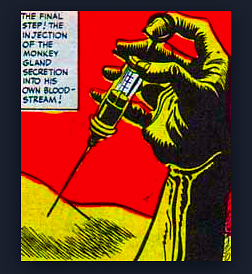

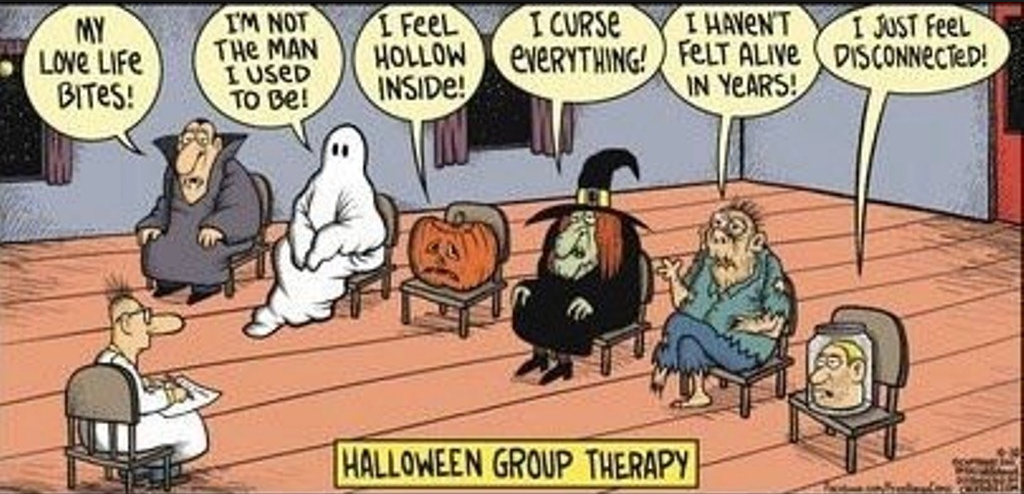




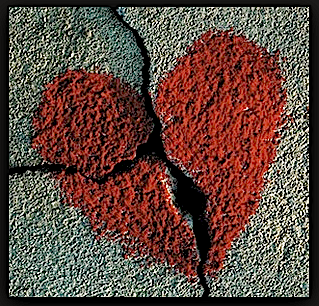
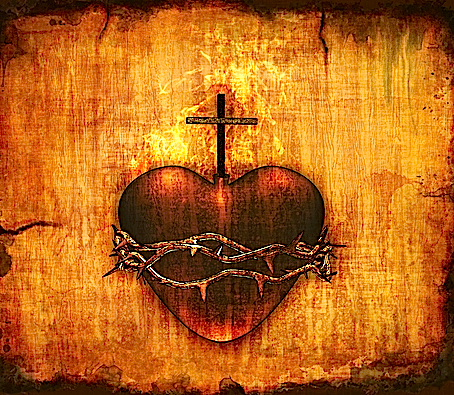
 RSS Feed
RSS Feed